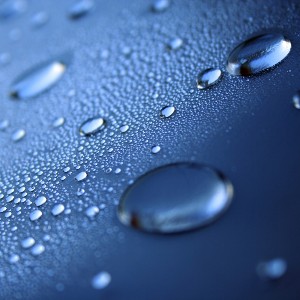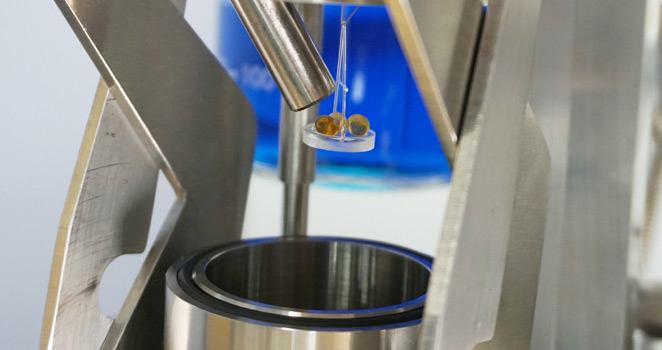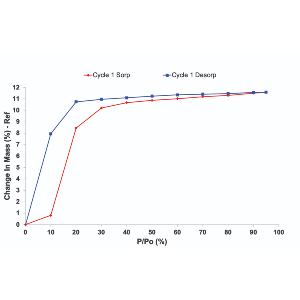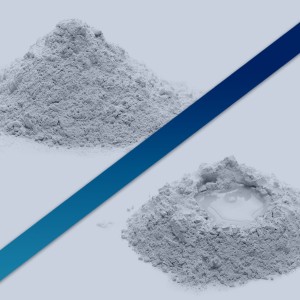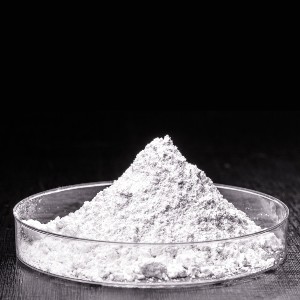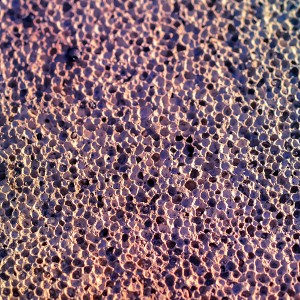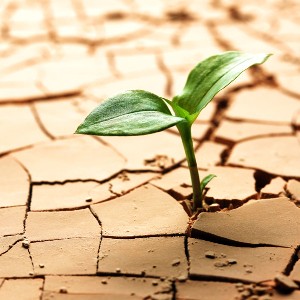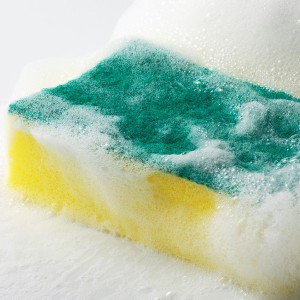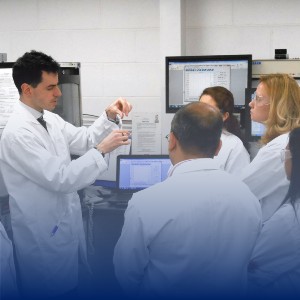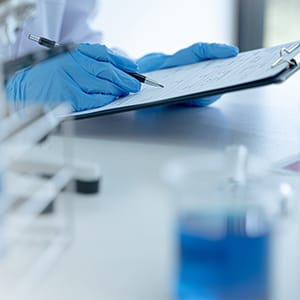With the release of the DVS Carbon, researchers now have a powerful, purpose-built tool for characterizing materials for Carbon Capture, Utilization, and Storage (CCUS) applications. With unique measurement and engineering capabilities, we are excited to demonstrate what this new instrument can do!
In this webinar, Product Manager Dr. Paul Iacomi will take the audience through the unique features of this innovative instrument, before having a closer look at the DVS Carbon’s capabilities in action. Case studies on the instrument’s applications, including Direct Air Capture and Post-combustion Capture, will show how to utilize the DVS Carbon in your own research.
The audience will also be given the opportunity to have their questions on the DVS Carbon and CCUS applications answered by the speaker in a live Q&A. Register free now.
Join our next webinar to explore recent advances & research into the use of advanced sorption techniques in analyzing key performance properties of biomaterials.
We are excited to be joined by Tiantian Yin, of McGill University, who will be exploring recent research into the use of Dynamic Vapour Sorption in characterizing vital properties affecting the mineralization of bioactive borate glasses, specifically when examined in conjunction with in-situ Raman.
This will be followed by Dan Burnett, Vice President of SMS, who will provide an overview of recent studies into measuring surface energy & wettability in biomaterials.
With an opportunity to engage the speakers directly in a live Q&A, this is an unmissable chance to gain fresh insights into recent advances in biomaterials characterization.
Full agenda:
Characterization of sodium & calcium addition on immediate aqueous interactions of binary borate glasses by DVS with in-situ Raman
Speaker: Tiantian Yin, McGill University
View abstract >>
The Importance of Surface Energy and Wettability in Biomaterials
Speaker: Dr. Dan Burnett, Surface Measurement Systems
View abstract >>
This workshop presents recent research from both ASG Analytik-Service AG (ASG) and Surface Measurement Systems.
When determining the uses and properties of oils, lubricants, seals, and VOCs, detailed knowledge of vapor pressure is vital for reasons of both function and safety. The speakers at this workshop explore their work in this area, detailing the techniques, instruments, and findings in their research into vapor pressure.
As well as featuring new research & case studies from leading global thought leaders in materials characterization, attendees also engaged with the speakers in a live Q&A. This was a unique opportunity to gain insight from global thought leaders, and engage with top scientists in your field.
We are excited to collaborate with Dr. Johanna Sygusch from the Helmholtz Institute Freiberg for Resource Technology on our next webinar, exploring recent characterization research into advanced battery materials.
Nowadays many electronic devices are being operated by batteries, including everyday devices (e.g. laptop and smartphones), healthcare devices (e.g. toothbrush), tools, toys, and vehicles as well. The use of batteries is forecast to increase significantly in the upcoming years. Therefore, the development of long and high-performance batteries and also the need to recycle spent batteries in order to ensure the supply of critical raw materials increased significantly in the last years, but is a complex task since the individual batteries have rather complex structures and varying composition.
During the development of the battery materials, temperature stability is one of the key parameters besides energy density, power density, lifetime, charging rate, cost and safety. Furthermore, the understanding of the surface properties and interfacial interactions of the anode and cathode materials is crucial in order to improve and develop efficient manufacturing and recycling processes.
In this webinar we present the surface and interfacial properties of different cathode (LCO, NMC, LFP) and anode (natural and synthetic graphite) materials. Characteristic properties include the specific surface area, the surface energetics at different temperatures measured with inverse Gas Chromatography (IGC) as well as water and cyclohexane sorption behaviour by Dynamic Vapour Sorption (DVS). Furthermore, we are going to present some results on wettability characterization using optical contour analysis and the Washburn method, as well as bubble-attachment and analytical particle solvent extraction tests. We also discuss which challenges arise during the recycling of spent lithium ion batteries by using the separation process of froth flotation.
Dr. Sygusch and Dr. Kondor will, among other things, give a detailed introduction to the Inverse Gas Chromatography and Dynamic Vapor Sorption techniques. With a live Q&A to finish the session, this is an unmissable opportunity to gain fresh insight into this vitally important topic from two leading experts.
This free online workshop, was organised with Fraunhofer IFAM, and we explore using advanced vapor sorption techniques and instrumentation to explore and evaluate the diffusion behaviours of solid state materials.
Discussing this topic are two leading experts in vapor sorption analysis, Dr. Michael Hoffmann (Fraunhofer IFAM) & Dr. Anett Kondor (Surface Measurement Systems). They explore the Dynamic Vapor Sorption and Inverse Gas Chromatography techniques, and how they are employed by labs across the world to provide detailed insight on diffusion.
This workshop organized with Universität Magdeburg explores advanced and innovative sorption techniques for analyzing catalysts, adsorbents, and functional materials for heat pumps.
Delivered by the world’s leading sorption instrumentation specialists, Surface Measurement Systems, the session dives into the advanced gravimetric sorption technique, Dynamic Vapor Sorption (DVS). This webinar provides insight on applications for studying zeolites, binary co-sorption of MOFs, VOC capture, silica gels and adsorption heat pumps.
Surface Measurement Systems and Finnceres collaborated to host a free-to-attend hybrid-workshop that highlighted the benefits of employing advanced sorption techniques in the characterization of bio-based materials.
This workshop features two presentations by world-leading experts in sorption science, Prof. Daryl Williams (Imperial College London) and Dr. Anett Kondor (Surface Measurement Systems). They introduce and explore the benefits of the Dynamic Vapor Sorption and Inverse Gas Chromatography techniques. With explorations of industrial applications, it’s a great opportunity to gain detailed insight
into these techniques, and how they could be employed in your research.
Inverse Gas Chromatography (IGC) is a rapid technique to determine thermodynamic parameters of gas-solid interactions and to characterize physicochemical properties of solid substrates. IGC offers its applicability where it is difficult and even impossible to characterize the surface of some forms of solids (powders and particulates) by means of other popular techniques as wetting method or FTIR. Solids and highly viscous liquids in many forms can be easily studied by means of IGC [1]. In this short presentation, we show three applications of IGC at high temperature and we introduce the new IGC- SEA system with high temperature oven.
First, adsorption isotherm data of several alkyl aromatic hydrocarbons (benzene, toluene, ethylbenzene, o-xylene, m-xylene and p-xylene) were measured in the temperature range of 423–523 K on a partially dealuminated faujasite type DAY F20 zeolite by inverse gas chromatography. The gas–solid equilibria and modelling were interpreted on the basis of the interfacial properties of the zeolite, by dispersive, specific and total surface energy heterogeneity profiles and distributions of the adsorbent measured by surface energy analysis.
Diffusion and mass transfer play a significant role in several materials processing operations. Diffusion and mass transfer are also of crucial importance in affecting the structure of solid products including segregation phenomena in castings and impurity distribution in crystal growth [2]. In the second study diffusion coefficients of cyclohexane and toluene on two catalyst samples were measured at 523 °C and 573 K and the uncertainty in the measurement was also determined.
In the last study, we investigated the thermal stability of anode and cathode materials by measuring the surface energetics at different temperatures, which is important during development of the battery materials, besides energy density, power density, lifetime, charging rate, cost and safety.
[1] A. Voelkel et al., Inverse gas chromatography as a source of physiochemical data, Journal of Chromatography A., 1216 (2009)
[2] Iguchi, M., Ilegbusi, O.J., (2013) Diffusion and Mass Transfer, Basic Transport Phenomena in Materials Engineering. Springer, London, 135- https://doi.org/10.1007/978-4-431-54020-5
The Importance of Surface Energy and Wettability in Biomaterials with Dr. Daniel J. Burnett
Abstract:
Surface energy is an important parameter for the characterization of surface properties. It can provide a useful picture of the energetic situation on the surface and shows a strong dependency on various macroscopic material properties. For example, it is directly related to the interfacial adhesion between two surfaces. In particular to biomaterials understanding the surface interactions of these materials becomes important as these could influence their biological reactivity, binding or adsorption interactions in different bioprocesses as well as the functionality of several biomolecules. In this review presentation, several case studies focused on measuring the surface energy and wettability of proteins, bioglasses, bone cements, and dental materials will be introduced. Work is highlighted by recent investigations from the authors. In particular, the surface energy as a function of relative humidity was investigated on proteins and glycine oligomers. In addition, previously published work from other groups will be introduced.
Surface Energy and Surface Area Studies on Pharmaceutical Powders using Inverse Gas Chromatography with Prof. Daryl Williams
Abstract:
The surface characterization of pharmaceutical powders is critical for many of the unit processes which occur with the manufacture of particulate based solid state dosage forms. In particular, the surface energy and the surface area are arguably the most important two surface property descriptors. This presentation illustrates how IGC can be used to measure the surface area of low surface areas pharmaceutical solids, including the surface area as a function of relative humidity. In the main part of this talk, the wide range of unit processes will be highlighted where the importance of powder surface energy can be demonstrated including granulation, powder flow, powder milling and dissolution. In particular the usefulness of surface energy heterogeneity mapping using IGC will be highlighted.
This workshop was organized in collaboration with Amofor and the University of Dortmund. Advanced sorption techniques can be essential characterization tools in the research and development of new pharmaceutical compounds and materials. Gain a deep understanding of advanced gravimetric sorption techniques, such as Dynamic Vapor Sorption (DVS) and Inverse Gas Chromatography (iGC), and how they can be employed to gain unparalleled detail and accuracy in materials research.
Along with special guest speaker Dr. Christian Lübbert (Amofor) exploring some of his recent research, the workshop features two leading Application Science experts from Surface Measurement Systems, Meishan Guo and Connor Hewson.
